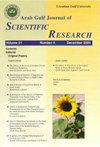Perception of COVID-19 rapid antigen testing approach prior to flight schedule among air travelers: a questionnaire-based study
Q4 Business, Management and Accounting
引用次数: 0
Abstract
PurposeThe COVID-19 pandemic had a huge impact on people's lives, air travel and tourism. The authors explored travelers' perceptions of COVID rapid antigen tests before boarding aircraft, willingness to fly and the precautionary actions for safe air travel.Design/methodology/approachAll the participants were asked to complete the survey while reflecting on their experiences of air travel during this COVID-19 pandemic. The questionnaire consisted of demographic information of the participants and air travel preferences during pandemic. The survey was conducted through Google Form in both English and Arabic language. The link was shared through emails and WhatsApp.FindingsIn this survey, majority had willingness to fly during pandemic. 45.2% preferred to undergo rapid test before boarding, while 41.9% refused owing to no added benefit (23.8%) and nasal discomfort (9.3%) among others. The best indicators to resume safe air travel were COVID-19 vaccination (80.4%), wearing face mask during flying hours (70.8%) and maintain social distancing with aircraft seating (49.6%).Research limitations/implicationsThe findings of the current survey could help the organizations and the biosecurity authorities to act and support accordingly and thus reduce passenger anxiety about resuming the flights, thereby increasing willingness to fly and preparing oneself and the aviation industry for future pandemics.Originality/valueThe findings of the current survey could help the organizations and the biosecurity authorities to act and support accordingly and thus reduce passenger anxiety about resuming the flights, thereby increasing willingness to fly, and preparing oneself and the aviation industry for future pandemics.航空旅客在航班前对COVID-19快速抗原检测方法的认知:一项基于问卷的研究
2019冠状病毒病大流行对人们的生活、航空旅行和旅游业产生了巨大影响。作者探讨了旅客登机前对COVID快速抗原检测的看法、飞行意愿以及安全航空旅行的预防措施。设计/方法/方法要求所有参与者在完成调查时反映他们在2019冠状病毒病大流行期间的航空旅行经历。问卷包括参与者的人口统计信息和大流行期间的航空旅行偏好。该调查是通过英语和阿拉伯语的谷歌表单进行的。这个链接是通过邮件和WhatsApp分享的。在本次调查中,大多数人愿意在大流行期间乘坐飞机。45.2%的人倾向于登机前进行快速检查,而41.9%的人拒绝登机,原因是没有额外的好处(23.8%)和鼻腔不适(9.3%)等。恢复安全航空旅行的最佳指标是COVID-19疫苗接种(80.4%)、飞行时间戴口罩(70.8%)和保持飞机座位的社交距离(49.6%)。当前调查的结果可以帮助各组织和生物安全当局采取相应的行动和支持,从而减少乘客对恢复航班的焦虑,从而提高飞行意愿,使自己和航空业为未来的大流行做好准备。当前调查的结果可以帮助各组织和生物安全当局采取相应的行动和支持,从而减少乘客对恢复航班的焦虑,从而提高飞行意愿,并为自己和航空业做好应对未来大流行的准备。
本文章由计算机程序翻译,如有差异,请以英文原文为准。
求助全文
约1分钟内获得全文
求助全文
来源期刊

Arab Gulf Journal of Scientific Research
综合性期刊-综合性期刊
CiteScore
1.00
自引率
0.00%
发文量
0
审稿时长
>12 weeks
期刊介绍:
Information not localized
 求助内容:
求助内容: 应助结果提醒方式:
应助结果提醒方式:


